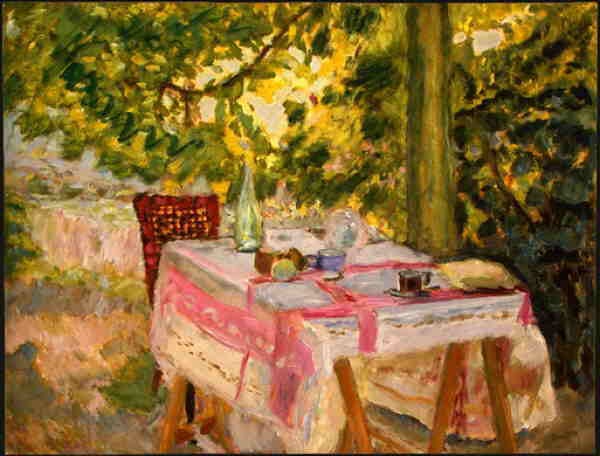I’m so glad you found your way to my Tuesday stories. Sign up for a free subscription so you won’t miss the stories’ recipes posted every Saturday!
Colette, the still unmatched writer of love, decided she had had enough of it. She left her men and women in Paris and bought a small house in Provence. Considering that she was on the verge of becoming an old woman, she banished the notion of her inevitable decline by arranging her big bed for solitary writing rather than sickness. She enjoyed her friends when they visited but, longing to capture a serene solitude, observed, “I am merely alone, and not abandoned.”
Yet, she was never truly alone. She reveled in her garden crowded with humming insects, hustling birds, and slinking creatures. By day, her cats luxuriated in the warmth of the stone patio and, come the night, delighted in stalking the garden. The ghost of her mother settled into every room. As was her former custom, she continued to comment on her daughter’s comings and goings. An amused sharp observer and unbidden dispenser of life wisdom, she sent her thoughts about what should be important to an aging woman:
I’m not accepting your kind invitation, for the time being at any rate. The reason is that my pink cactus is probably going to flower. It’s a very rare plant I’ve been given, and I’m told that in our climate it flowers only once every four years. Now, I am a very old woman and if I went away when my pink cactus is about to flower, I am certain I shouldn’t see it flower again.
There was, though, one youthful indulgence Colette did not release—the contentment found at a table festive with simple dishes and good wine, with interesting friends seated about.
Consider her lunch built around the season’s wine:
First the bottles are chilled to perfection by the cool waters of her deep well. A “red-currant” rosé is uncorked to accompany slices of green melon. This is followed by a “sand-grown wine, amber-colored and over generous,” poured for a simple salad of freshly harvested tomatoes, pimientos, and onions soaked in olive oil. Finally, for there will certainly be another bottle opened, a plate of assorted ripe fruit still damp from the morning’s dew.
Another day, this time after Colette returns from an ocean swim with a beautiful young man she is holding at bay or—thought less generously—toying with. She offers him a small selection of stuffed freshly caught sardines. After they have pulled the last flakes from the spines and translucent ribs, she offers a few purple figs. They must be bitten into carefully, for their thin skins, once broken, quickly release the soft sweet pulp that will run through the couple’s fingers.
And now a late summer night’s dinner. Colette serves platters of young chickens that, just that morning, scattered innocently across her lawn and now lay split and beaten flat, salted and peppered, brushed with local olive oil using a sprig of pebreda1, their skin grilled crisp. Her guests linger at the table long into the night. Their city is amusing but ultimately bores her. The tempting beautiful young man seated beside her sulks at her maintained distance while across the table the young woman she wants him to choose despairs that the older woman’s powers will never fade.
Near dawn, Colette observes the beautiful young man haunting her garden for a glimpse of her but his presence led only to thoughts of breakfast….“in a few moments boiling milk, black coffee, and the butter lying at the bottom of the well.”
I am in no way Colette, without her perfection and courage, and a decade older than she was when she wrote her book, Break of Day, chronicling her passage into old age. I never even made it to her first step in her journey: I never renounced love for the simple reason that I would not have made it this far without the sanity my husband brought to me in my youth. Nevertheless, I am walking hand-in-hand with Colette toward the inevitable. I began by letting go of youth’s vanity, the only way to secure an enviable strength of solitude, and now, despite the troubles surrounding all of us, the striving for the serenity of acceptance. And always, always, counting on the constancy of offering a simple meal to a company of a few but, most especially, to one.
Thank you for reading America Eats! Your support helps me write stories not often told—and celebrate people who should be remembered and acclaimed—in the food world and at the American table.
If anyone knows what pebreda is, please let me know. I couldn’t find it anywhere, including in various old dictionaries of French cuisine.



